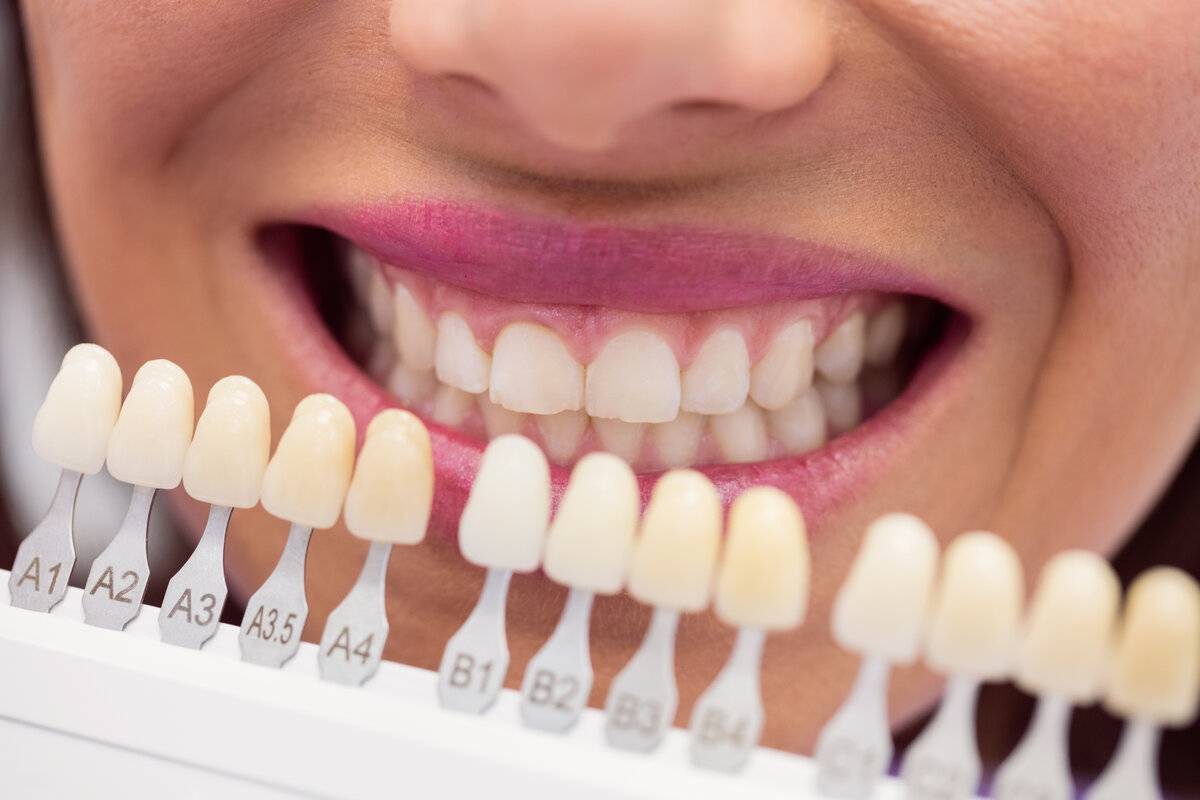Have you ever caught yourself avoiding that ice cream you love so much for fear of that sudden toothache? Tooth sensitivity to cold can turn what should be a moment of pleasure into an uncomfortable experience. If when you eat something cold you feel that twinge in your teeth, don’t worry, there are ways to alleviate it! Today at Medident we are going to explain why this sensitivity occurs and how you can mitigate it. From home remedies to professional treatments, we’ll show you how to enjoy your favourite cold foods again without having to worry about tooth pain.
What is tooth sensitivity ?
Tooth sensitivity is a common condition that causes a painful sensation in the teeth when they come into contact with stimuli that should be harmless, such as cold foods. This discomfort can be mild or intense enough to make the thought of ice cream cause you to worry.But why does this happen?
At the core of each tooth, there is a substance called pulp that contains sensitive nerves and blood vessels. The pulp can become more susceptible to external stimuli if the enamel that normally protects it weakens or if the gums recede, exposing the underlying dentine.When dentine loses its protective covering, microscopic channels within it, called dentinal tubules, allow stimuli such as cold or heat to reach the nerves, causing that characteristic twinge of cold tooth pain.
Tooth sensitivity to cold can be an indicator that your teeth need attention. Conditions such as enamel wear, a cold-sensitive tooth, or even cold-sensitive gums can be the warning sign to visit your dentist. By understanding what tooth sensitivity is and what causes it, you can take steps to improve the health of your mouth and reduce this painful sensation.
Identifying tooth sensitivity
As we have already seen, tooth sensitivity can turn pleasant experiences into uncomfortable and painful moments. Recognising and understanding it is the first step to finding relief.
Symptoms of tooth sensitivity
Tooth sensitivity manifests itself in different ways, these symptoms are the most common:
- Sudden pain to cold: This is the classic and most notorious symptom, where a sharp pain is felt when consuming cold foods.
- Sensitivity to heat: Although less common, heat from food or liquids can also trigger sensitivity.
- Pain on brushing: Teeth may feel especially sensitive during and after brushing.
- Reaction to sweets: Sensitivity may occur when eating sweets, especially sticky or chewy ones.
- Discomfort on contact with acids: Acidic foods and drinks such as citrus fruits can also provoke a painful response.
Common causes of tooth sensitivity
If we understand the causes of tooth sensitivity, both professionals and patients will have many more tools to prevent and treat it:
- Enamel wear: Brushing teeth too hard or using toothpastes with abrasive particles can wear down enamel over time.
- Acid reflux or eating disorders: These conditions can lead to enamel erosion due to stomach acid.
- Receding gums: When gums recede, they expose the tooth root and dentin, increasing sensitivity.
- Tooth decay: Lesions from exposed decay can reach the dentin and cause sensitivity.
- Cracked or fractured teeth: Cracks can expose dentine and cause pain on contact with stimuli.
- Tooth whitening or recent dental treatments: Some dental treatments can temporarily increase sensitivity.
When to see a dentist
If you experience tooth sensitivity or tooth sensitivity that interferes with your daily routine, it’s time to see a professional. Dentists can identify the exact cause of your sensitivity and provide you with treatment options ranging from desensitising toothpastes to more complex procedures that aim to protect dentin and reduce sensitivity.
Strategies to prevent tooth sensitivity
We dentists treat tooth sensitivity almost every day in our practice. It is very common and almost everyone has experienced it at least once. From our experience, these tips can help you find relief:
Recommended daily dental care.
To keep your teeth strong and minimise sensitivity, we recommend:
- Use of toothpastes specifically for tooth sensitivity relief: These pastes contain compounds that help block the transmission of sensations from the tooth surface to the nerve.
- Fluoride rinses: Daily fluoride rinses can help strengthen enamel and reduce the transmission of sensations.
- Gentle daily brushing: Dental hygiene is essential to avoid further complications, but you should brush your teeth with a soft-bristled brush and gentle strokes.
Foods to avoid
Some foods can increase tooth sensitivity, so it is best to avoid them:
- Soft drinks and citrus fruits: These can erode enamel and increase sensitivity.
- Foods high in sugar: These can encourage tooth decay and cause additional sensitivity.
- Very hot or cold foods: If you already experience sensitivity, it is preferable to consume foods at a moderate temperature.
Brushing techniques to prevent sensitivity
The correct brushing is essential to take care of your teeth:
- Gentle brushing: Use a toothbrush with soft bristles and make gentle circular movements so as not to wear down the enamel or damage the gums.
- Do not brush immediately after eating: Wait at least 30 minutes after consuming acidic foods or drinks to avoid brushing weakened enamel.
- Flossing daily: This helps keep gums healthy and prevent recession that can expose sensitive dentin.
With these daily practices, we can help you keep tooth sensitivity at bay and ensure you can enjoy your favourite foods and drinks without fear of pain.
Professional treatments for tooth sensitivity
As dental health experts, we offer a range of professional treatments specifically designed to alleviate tooth sensitivity and protect your teeth from future discomfort.
Fluoride and its benefits for sensitive teeth
Fluoride has a big role to play in the fight against tooth sensitivity. With a few in-office applications of fluoride, we can help strengthen tooth enamel, making it more resistant to acid erosion. In addition, fluoride can contribute to remineralisation of already affected areas, closing the exposed dentinal tubules that are the source of the pain.
Crowns, fillings and sealants
In cases where tooth sensitivity is due to damaged or worn teeth, crowns, fillings and sealants may be the solution. They not only restore tooth form and function, but also seal and protect sensitive areas from stimuli that can cause pain.
- Crowns: These are used to cover and protect a damaged tooth or after root canal treatment.
- Fillings: If the sensitivity is due to decay, a filling will remove the decay and protect the dentin.
- Sealants: These are applied to teeth to seal cracks and crevices, preventing plaque build-up and enamel erosion.
Desensitisation Treatments
For cases where tooth sensitivity is more severe, in-office desensitisation treatments may offer relief. These may include gels, varnishes or desensitising agents that are applied directly to the exposed dentine and dentinal tubules. These treatments create a long-lasting barrier that protects the nerves of the teeth from painful stimuli.
Long-term solutions for tooth sensitivity
In addition to immediate treatments, you can also apply certain strategies to find lasting relief and improve your dental health on a more general level.
Lifestyle changes to improve dental health
Adopting healthy habits is key to preventing tooth sensitivity and maintaining a healthy mouth:
- Balanced diet: Include foods rich in vitamins and minerals that strengthen teeth, such as those with calcium and phosphorus, and reduce consumption of acidic foods and drinks that can erode enamel.
- Adequate hydration: Drinking enough water not only improves overall health, but also helps to cleanse the mouth of acids and sugars that can cause sensitivity and tooth decay.
- Stop smoking: Smoking can worsen gum problems, which can lead to increased sensitivity of the gums and teeth.
Importance of regular visits to the dentist
Keeping a schedule of regular visits to the dentist allows us to detect any warning signs early and start the appropriate treatment as soon as possible. These visits allow for:
- Professional cleanings: Remove plaque and tartar that cannot be removed by brushing and flossing at home, preventing receding gums and sensitivity.
- Dental health monitoring: Regularly checking the health of teeth and gums can help identify and treat potential causes of sensitivity early.
- Personalised advice: Based on an assessment of your oral health, we can offer specific recommendations for you, which may include specialised products to relieve tooth sensitivity.
Conclusions
If you’ve made it this far, you probably suffer from tooth sensitivity on a regular basis. Don’t let tooth sensitivity limit your daily enjoyment. Contact us to schedule a consultation and find out how you can get lasting relief and good dental health. Your smile is our priority, and together we can find the perfect solution for you.









